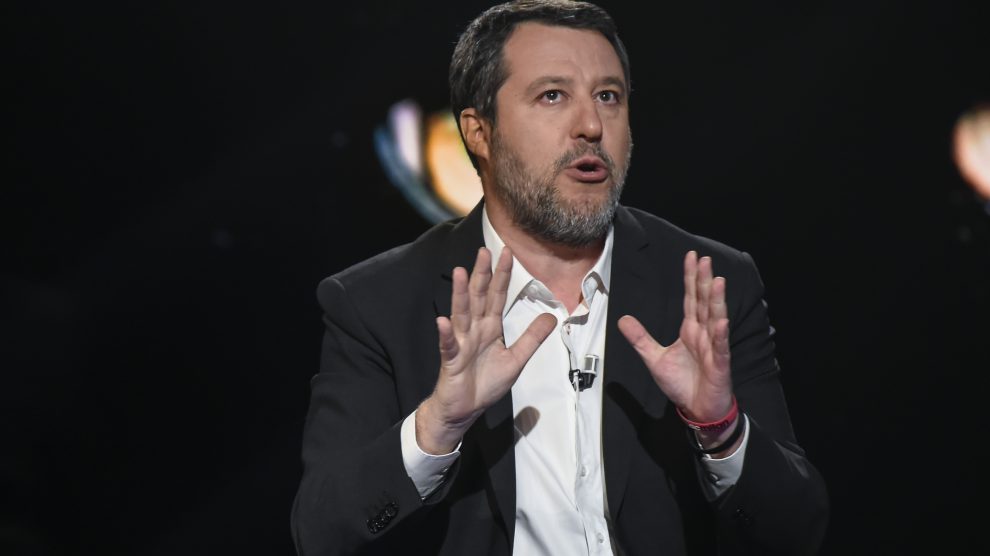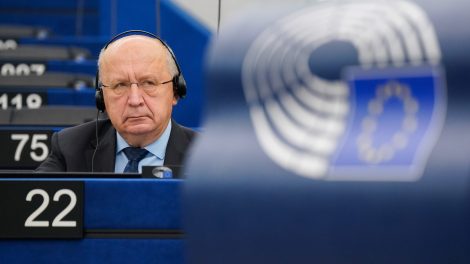Decoding the news. On Wednesday, Deputy Prime Minister Matteo Salvini sparked controversy after being seen greeting Russia’s ambassador Alexei Paramonov in Rome at a Chinese Embassy event — just hours after Moscow issued fresh threats against Italy over its military posture.
- The episode reflects Salvini’s longstanding push for a softer line toward Russia, which has shaped recent government decisions.
The handshake. The event in which Salvini shook hands with Russia’s ambassador Alexei Paramonov was the anniversary reception organised by the Chinese Embassy – an appointment Salvini has attended.
- It is hosted by a country that seeks to spread its anti-Western narrative in Italy and, like Russia, aims to subvert the rules-based international order on which the West relies.
The reaction.“At the reception, I met the Russian ambassador just like I met dozens of other ambassadors. I was invited like other ministers, and there were also parliamentary colleagues from the PD and FdI,” Salvini said in an interview with Telelombardia.
- “If you’re a guest in someone’s home and someone greets you, you return the greeting — that’s the right thing to do if you care about maintaining good relations and rebuilding dialogue. I prefer a handshake to a hostile stare.”
- He added: “If the conversation is only about war, and you’re sending soldiers to die at the front… that’s not my goal — and I don’t think it’s anyone else’s either.”
From Russia with no love. “From the top levels of Italy’s national security bloc come one alarmist statement after another — about the urgent need to defend the country’s airspace, the alleged unpreparedness to repel a Russian offensive, and the dispatch of Italian aircraft to Poland to confront so-called ‘threats from Russia’ on NATO’s eastern front. This artificial escalation of hostility towards Russia translates into seemingly ‘logical’ proposals to increase military spending over the next six years drastically,” said the Russian ambassador.
- The attack: The Russian Ambassador also condemned Italian media narratives following the drone incident in Poland, claiming they serve the Zelensky government’s attempt to provoke a direct NATO-Russia clash, and warned Italy not to be dragged into alignment with what he described as the “criminal regime in Kyiv.”
Behind the scenes. According to Italian press reports, Italy may not participate in NATO’s new mission in Poland, “Eastern Sentry,” which was launched in response to a recent drone incident and aims to strengthen the Alliance’s air defense posture along its eastern flank. The country was expected to contribute with a Eurofighter deployment.
- Per media’s scources, the decision was taken under pressure from Salvini, who wants to avoid showing Italy as active in deterrence operations against Russia and continues to advocate for reopening dialogue with Moscow.
- Prime Minister Giorgia Meloni and Foreign Minister Antonio Tajani opted for a compromise to preserve coalition unity.
Why it matters. Favouring Moscow’s interests would be especially risky, especially in the framework of the Chinese Embassy, given the broader context: Russian influence operations are already penetrating sensitive areas of Italian society.
- Russian strategic penetration is underway in Italy, even in the educational field. On Sept. 23, the Gino Germani Institute will present a study in the Senate showing how middle school textbooks reflect key elements of the Kremlin’s narrative.
- These narratives influence how young Italians learn about Europe and its history, exposing deep cultural vulnerabilities.
- Rather than shaking hands with an envoy of a regime that is sowing death and destabilisation in Europe, Italy’s leaders would be better served by drawing a clear line of resistance to such influence.





